Charcuterie Vol. 24
Been a little while...
Things I’ve read:
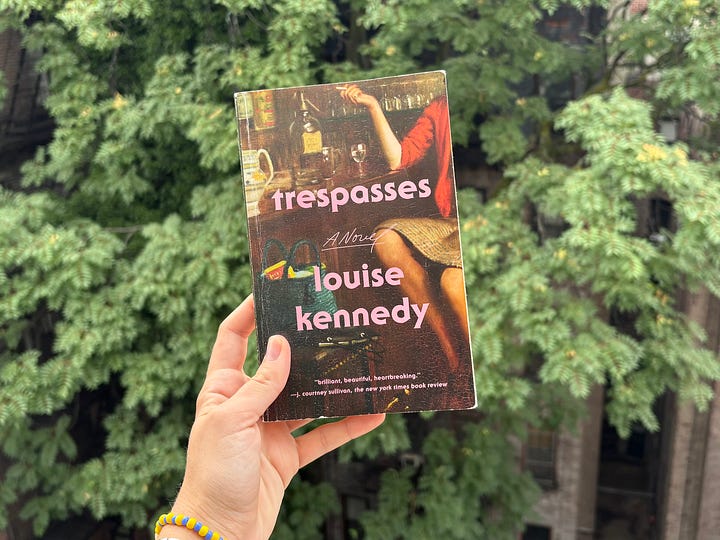
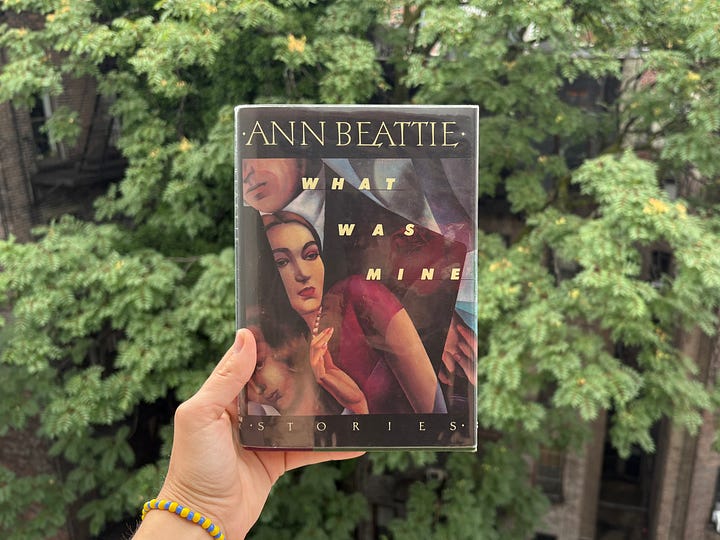
Trespasses by Louise Kennedy
It’s 1975 in a small town near Belfast. Cushla Lavery is an elementary school teacher. A Catholic elementary school teacher. Her father is dead, her mother a drunk, and her family owns a bar, where she sometimes works in the evenings. There she meets Michael Agnew. Michael is twice her age, and a Protestant, and to complicate things further, is somewhat notorious for defending young IRA members in court. Oh, and he’s married.
Louise Kennedy’s writing is stark yet warm—pulsing with the violence of the time she writes about and run through with an immense tenderness for her characters. She has a gift for spinning up a completely feel-able world, with what in hindsight feels like very sparse collection of words (complementary).
I was assured that the ending would be devastating, heartbreaking, tragic. And it was, it was! But it also felt a bit contrived to me. She set the stage so effectively, and wove such a web, only for the crisis of the novel to hinge completely on chance. As Cushla struggles to come to terms with what’s happened, her eventual conclusion is that, “there had been no connection after all. It was just bad luck, the sort of thing that happened here all the time.” I get the point, given the setting, but ehhh.
I still recommend if it sounds like your cup of tea though! Anyone who likes Sally Rooney (and even some people who don’t particularly (like me)) would enjoy this one.
What Was Mine by Ann Beattie
I am famously not that into short stories, but I received a recommendation to read this from a young woman I met who wants to and likely will be a writer. Ann Beattie is her inspiration, and I happened to know who Ann Beattie was, mainly because I had recently read this essay, which is fantastic and not about her at all, but which does mention her peripherally.
She is, no doubt, a highly skilled writer, but unfortunately her goals don’t align with my interests. She is, I think primarily interested in lifting stones and seeing what worms and roly polies might be found. Not things that are truly dark and sinister, but just on the cusp. The less noble impulses, the regrets, the lies. It’s neither here nor there, and maybe a failing on my part, but Beattie seems to delight in incorporating randomness in her stories that, though somewhat seductive—in its promise of, well, coming to something—failed to land for me. The novella that takes up the last third of the collection felt more complete. Maybe I’ll read one of Beattie’s novels, but honestly, probably not!
I still recommend if you like short stories, divorce fiction and characters who are secretly unfulfilled in their lives.
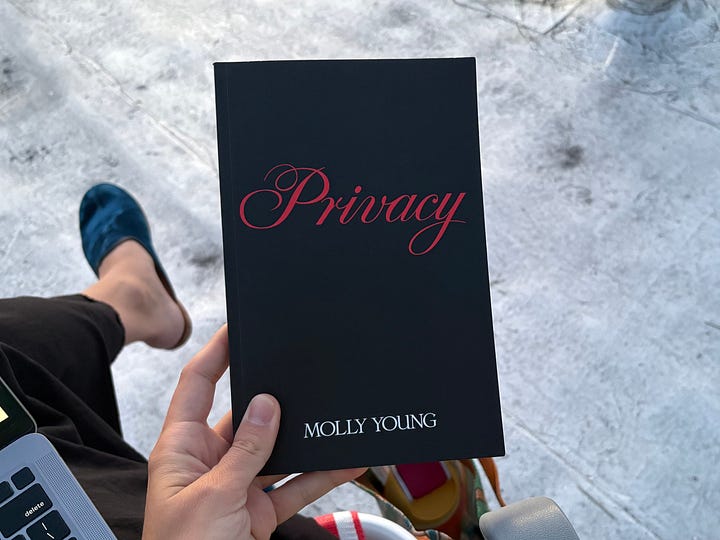
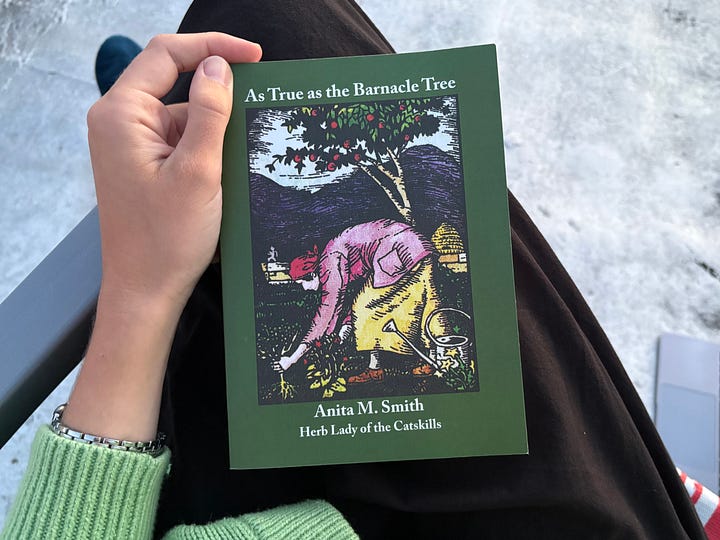
I love Molly Young’s writing, so when she released a zine on her pregnancy, I ordered it immediately. I would have done this even if many people in my life weren't pregnant this summer (which they were), and even if I didn’t find pregnancy generally captivating (which I do). Young has a way of pulling from the world that makes each next sentence a surprise. She pulls, she weaves, she presents to you something that is thought provoking, or if not that, entertaining.
As True as the Barnacle Tree by Anita M. Smith
I read this after East of Eden when I felt like I needed to read something that wasn’t a novel but that still addressed the primeval in some way. A collection of brief essays by the Herb Lady of the Catskills felt like the ticket. The writings collected here include Smith’s accounts of opening and running her famous herbal nursery and shop, herb-related and adjacent regional folklore, Native American herbalism, and a ledger of Smith’s favorite herbs for cooking. It made me want to start growing herbs on my fire escape, which I always say I will do and never do.
Shorter Things I’ve Read:
After going on about how I don’t like short stories, I will recommend a short story, which I read and quite did like this month. “The Bridge Stood Fast” is a skillful (Irish, obviously) account of an eleven year old girl in the in between, not a child, and not yet grown. Her loving father watches with confusion and some dismay as she becomes, in what seems like the span of four days, that impenetrable thing: a woman.
I legitimately cannot stop thinking about the fact that Canada is Killing Itself—Elaina Plott Calabro reports on Canada’s Medical Assistance In Dying (MAID) program. The practice of euthanasia was legalized in 2016 and as of 2023, the last year for which data is publicly available, MAID accounted for almost 5% of Canadian deaths. In Quebec, that number is 7%. In Belgium, where medically assisted suicide is also legal, it took 20 years to reach a rate of 3%. Sometimes, particularly with the really foundational stuff (i.e. life is sacred), it’s tempting to believe that everyone around you (in the world??) is operating from some basic level of mutual understanding. And I suppose sometimes it’s important to be reminded—that isn’t true at all.
Falling in the same bucket (things I morally, ethically, and spiritually object to, but I guess know thy enemy??) is this piece on How to Live Forever and Get Rich Doing It. I could say something nuanced about human progress and quality of life and my vehement objection on spending huge sums money on eternal upkeep of the body while ignoring the maintenance of the soul, but instead, I’ll keep it simple and say: get old and DIE. It’s the whole point.
In preparation for Murdoch-tober (looking @ you Books on GIF) I felt lucky to stumble upon this piece on Iris Murdoch’s love-based morality. As a firm believer in the power of attention, I am thoroughly intrigued. Methinks I will start with The Black Prince (Mike, do you approve??).
Poetry (For the Maintenance of the Soul):
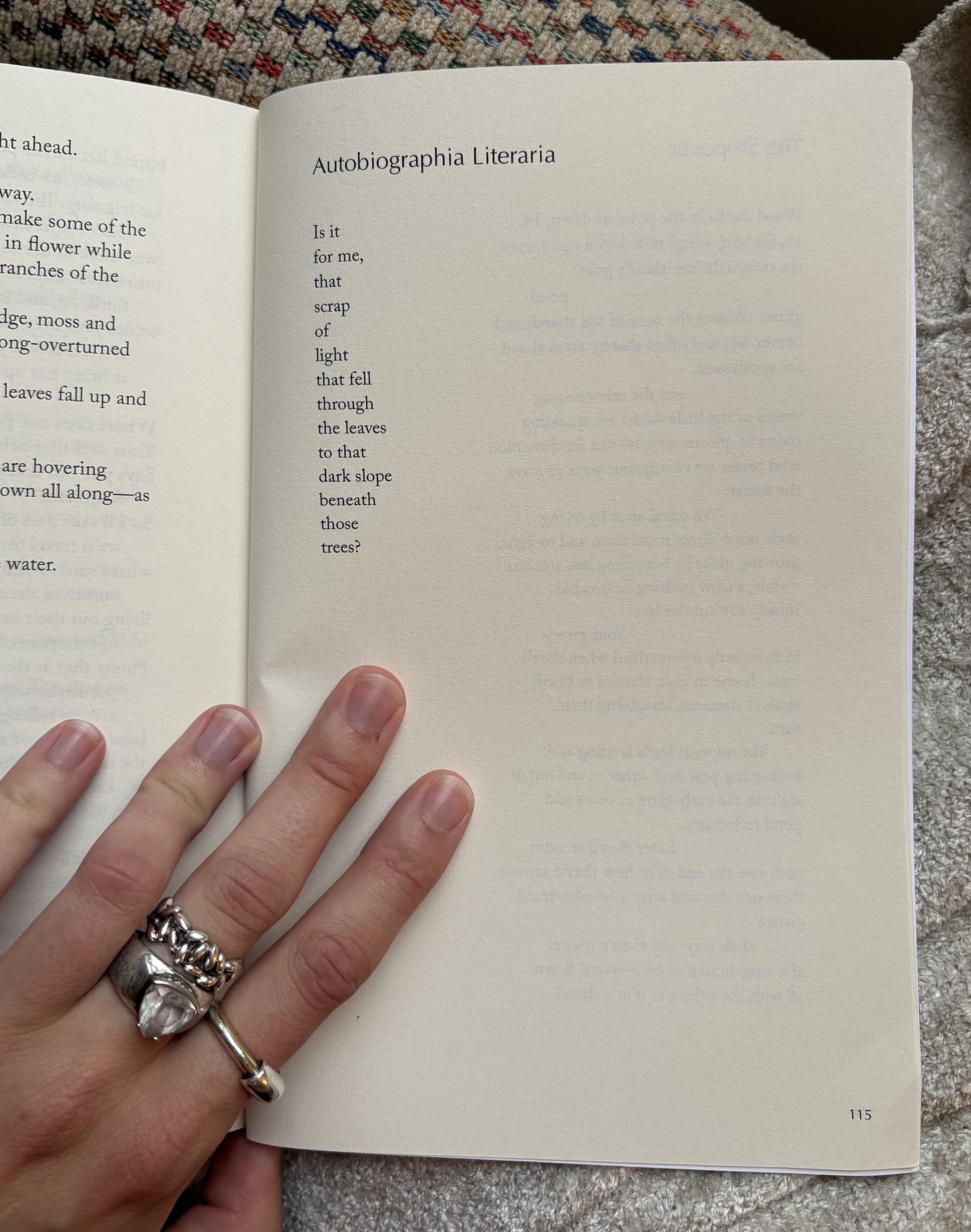


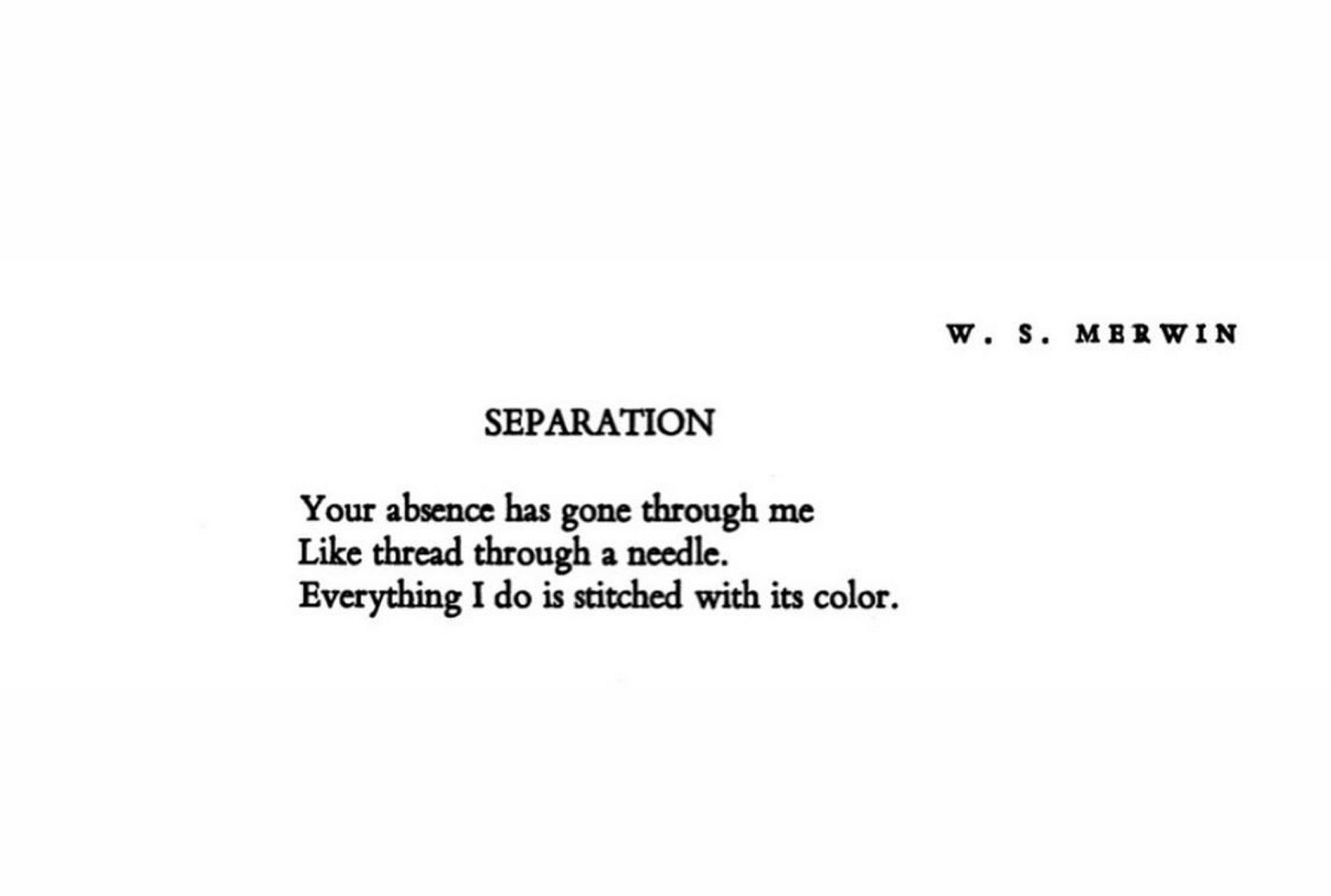
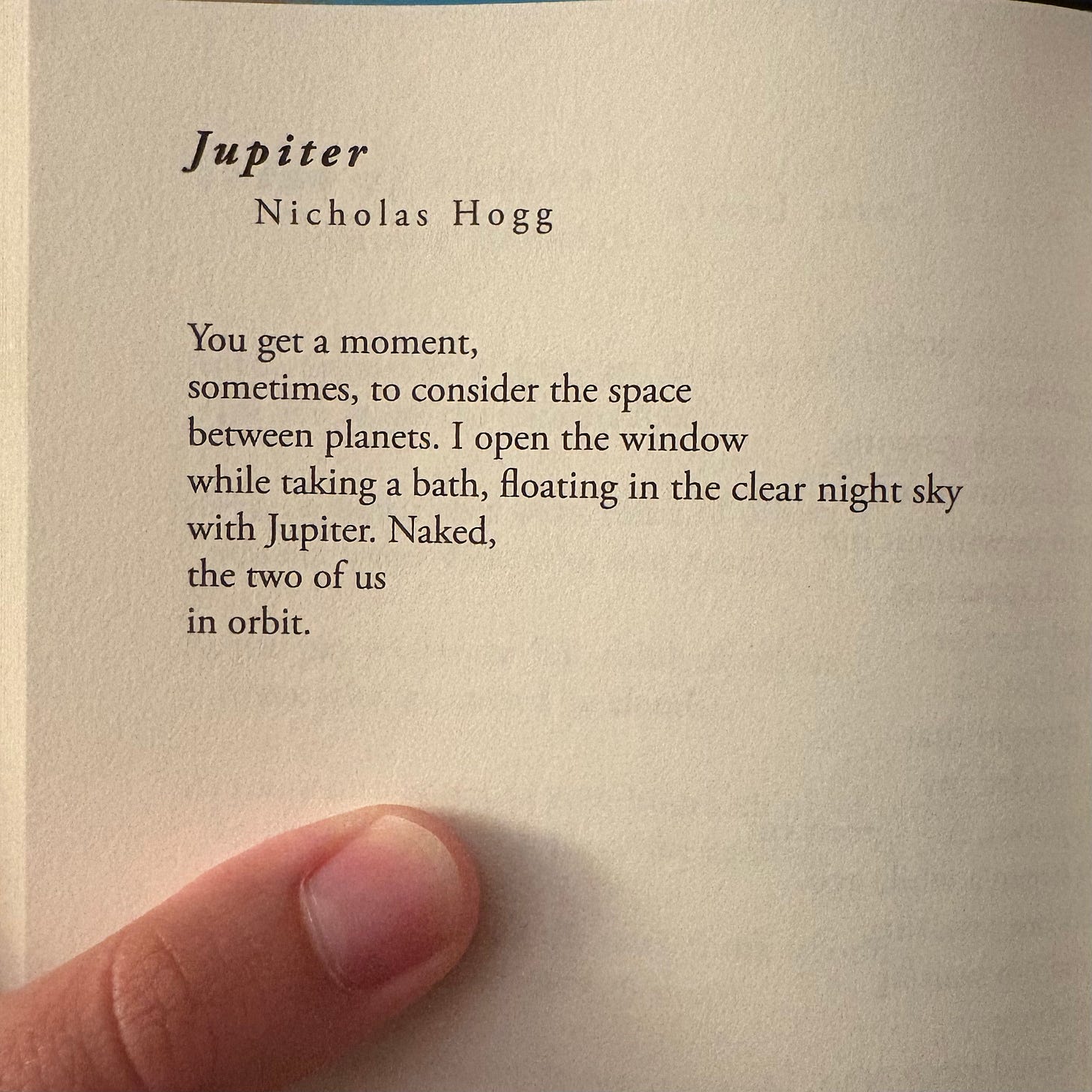
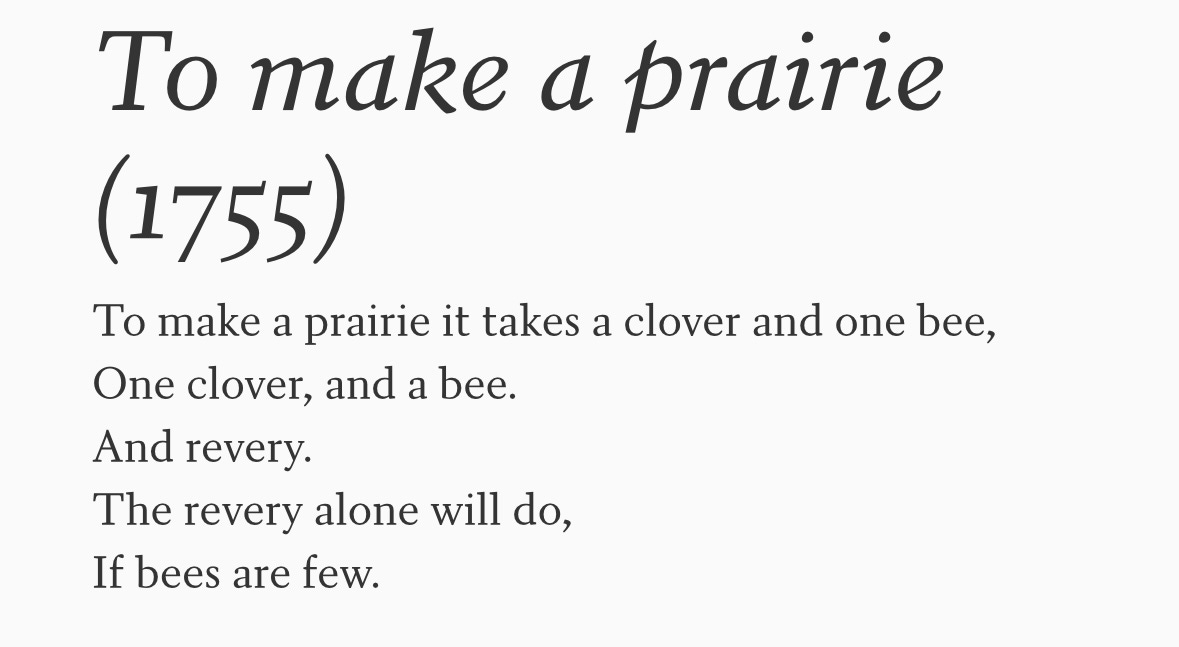
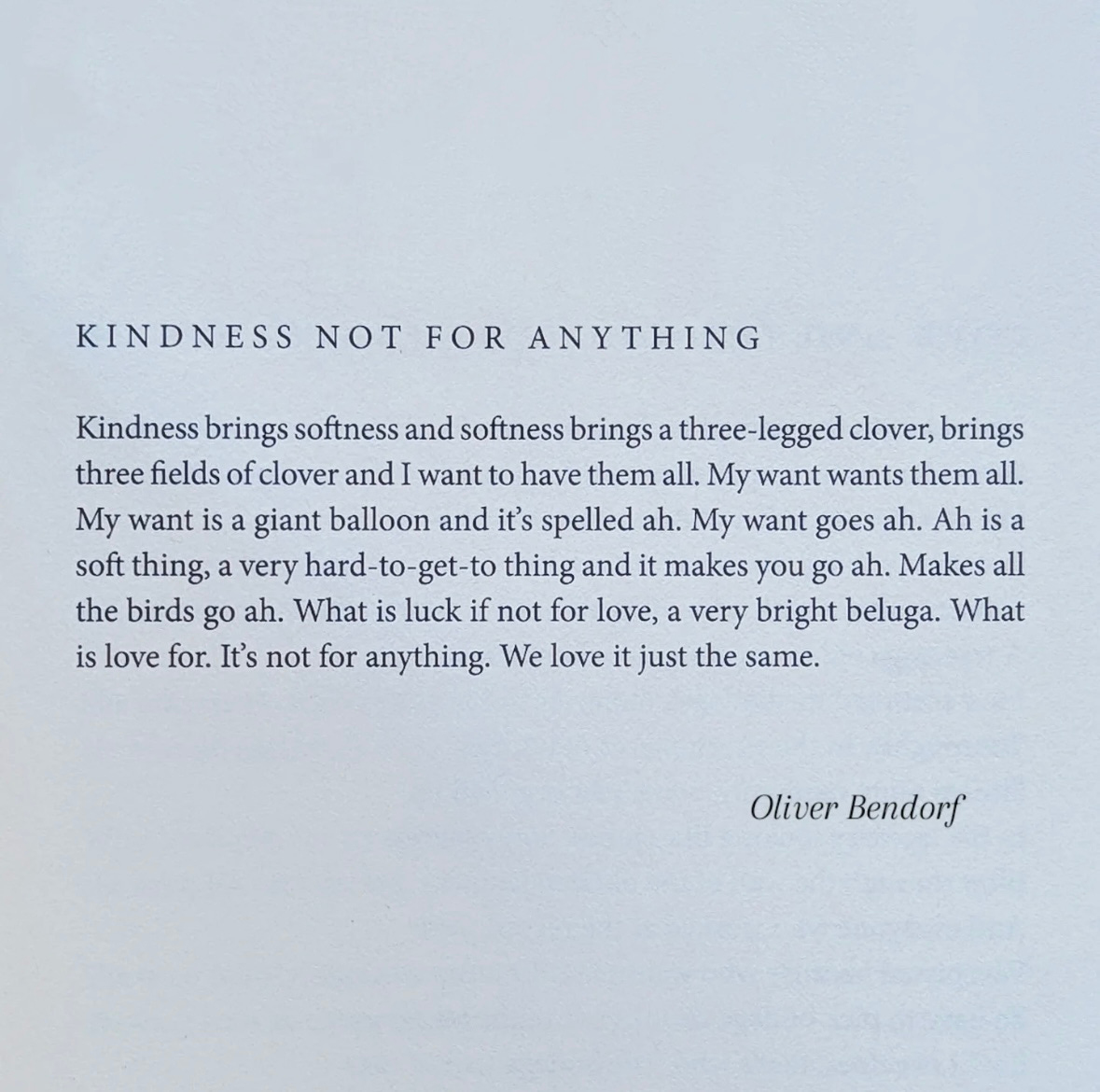
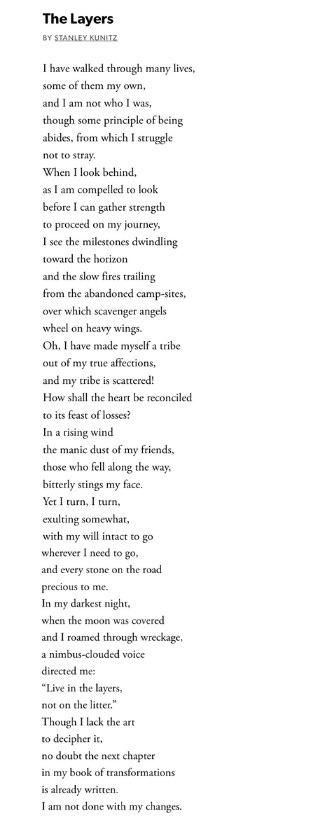

What a well rounded and delightful selection. I must indulge in more poetry (for maintenance of the soul).
Excited to see you're gearing up for Iris Murdoch-tober, Eve! The Black Prince is a solid choice. I hope you enjoy it!